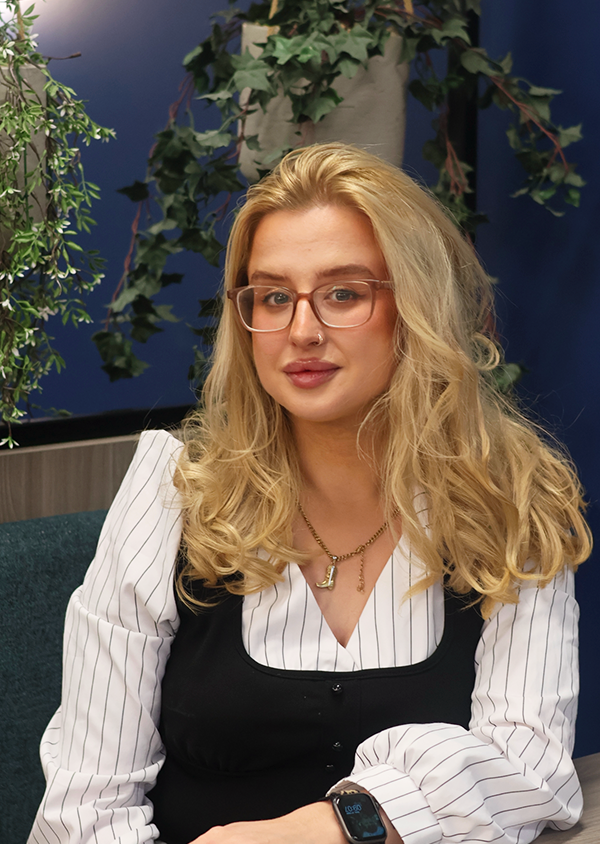As the resident technology-challenged team member of Team Embryo, any change – whether the suggestion of a second screen, various Chrome extensions or a Chromebox, though appreciated, can get my anxiety levels rising. ‘’What’s wrong with my way of working?’’, I’ve exclaimed in the past – clutching a Mac that froze every 5 minutes, and a laptop with buttons in confusing places. Ok, to say I have a problem is an understatement. And though I’ve still not come around to the idea of a second screen, change, I’ve learnt, can be good. My Chromebox certainly makes working faster, and I’m using a number of extensions that aid my job. In fact, it’s because of this, that I’ve recently seen advertising for charity-based extensions and search engines, and the good they can do. Whether they’re taking trash out of the oceans or planting trees every time we search, there are a number of extensions that can make our search habits go much further. So without much further ado, I’d like to introduce you to two of them.
OceanHero
Did you know…?
- 100 million marine animals die each year from plastic waste alone.
- 1 in 3 marine mammal species are found entangled in litter, with 12-14,000 tons of plastic being ingested by North Pacific fish yearly.
- There are 5.25 trillion pieces of plastic waste estimated to be in our oceans. 269,000 tons float and 4 billion microfibers per km² dwell below the surface.
- Plastics take 500-1000 years to degrade; currently 79% is sent to landfills or the ocean, while only 9% is recycled, and 12% gets incinerated.
- Every day, approximately 8 million pieces of plastic pollution find their way into our oceans.
For every 5 searches you do, OceanHero removes one plastic bottle from the ocean. Working with Plastic Bank, OceanHero pays people in impoverished parts of Haiti, Indonesia and the Philippines to recover ocean-bound plastic, not only benefiting the ocean, but the collectors themselves. Over 4,300 collectors exchange plastic for money for school tuition, sanitation and food – things many of us take for granted.
But where does the money come from? Well, when you search for something using OceanHero, advertisers pay to show you ads. Whenever you click on an ad, OceanHero receives part of the revenue. And what happens to the plastic? Well, Plastic Bank recycles the plastic into ‘’social plastic’’, which is then used to create products that support environmental awareness.
They’ve seen some great results since their initial release in October 2019, including:
- December 2019: 35,993 bottles collected through 179,968 searches.
- January 2020: 229,219 bottles collected through 1,146,095 searches.
- February 2020: 553,494 bottles collected through 2,767,474 searches.
You can download OceanHero here.
Gaia Mission
Did you know…?
- Between 1996 and 2016, the world lost 502,000 square miles (1.3 million square km) of forest.
- Throughout the world, approximately 900 million trees are cut down annually (equating to 2.47 million trees every day).
- Deforestation has impacted the populations of a whole range of animals, including the giant panda, the orangutan, the gorilla and the tree kangaroo.
- 75% of WAZA’s (World Association of Zoos and Aquariums) zoos and aquariums offer irresponsible animal-visitor interactions.
- Wildlife trafficking is a $23 billion criminal industry
Gaia Mission uses its portion of ad revenue to support animal protection charities, as well as environmental causes. For example, Farm Sanctuary – one of the organisations they support – has rescued thousands of animals, and has cared for them at its sanctuaries. Also running training sessions and events that educate people on the plight of farm animals and the negative impact of factory farming, it’s certainly a cause worth supporting.
Other Projects Gaia Mission Supports Include:
- Dive Against Debris: Encourages scuba divers to remove debris from the ocean.
- Rainforest Trust: Namely the ‘Saving Indigenous Lands in the Amazon’ and ‘Securing a Critical Wildlife Corridor in Kenya’s Northern Rangelands’ projects.
Pretty great huh? What’s more, if you’re a charity and want to increase your reach with beneficial paid ads, then you may qualify for Google Ad Grants. If you’re a qualifying nonprofit, you’ll receive $10,000 USD in in-kind Google Ads advertising every month – allowing you to use donations more effectively.
To qualify for Google Ad Grants, your organisation must:
- Hold valid charity status.
- Acknowledge and agree to Google’s required certifications regarding non-discrimination and donation receipt and use.
- Have a high-quality website that meets the Ad Grants website policy.
- Get approved through the Ad Grants pre-qualification process after your organisation is enrolled in Google for Nonprofits.
If you don’t qualify, or you own a business and you’re looking for ways to expand your reach and appear for related search terms, then we suggest getting in touch with us today on 0161 327 2635. From SEO strategies and PPC campaigns through to content marketing tactics, we can help take your online presence to the next level.












